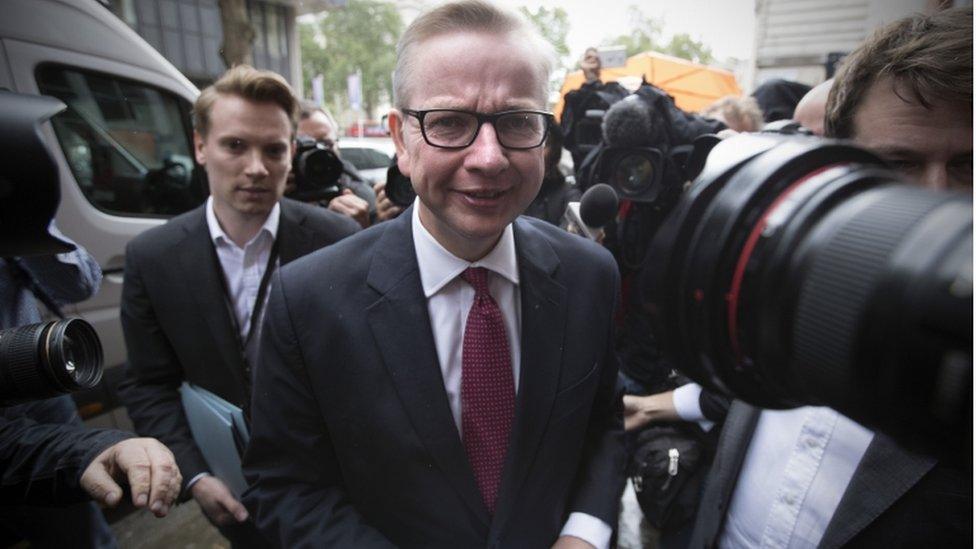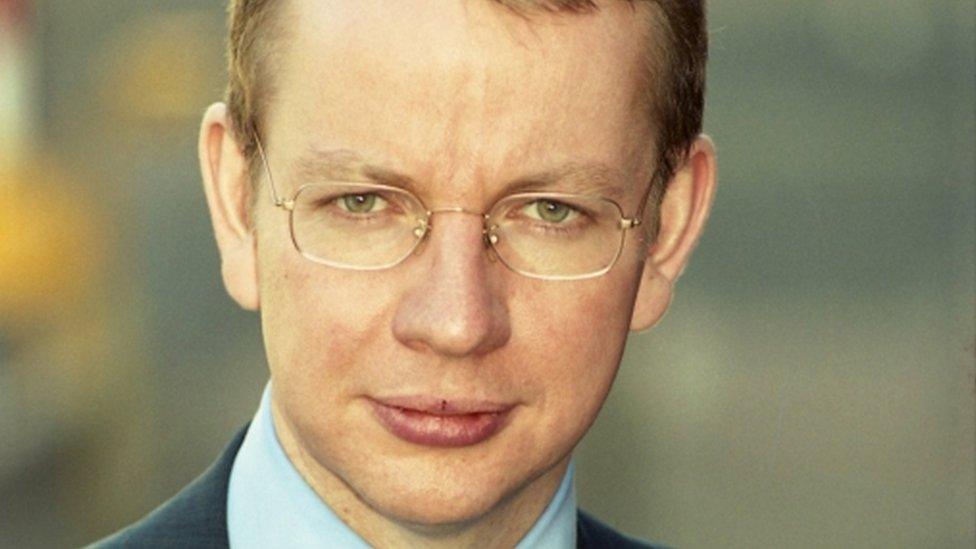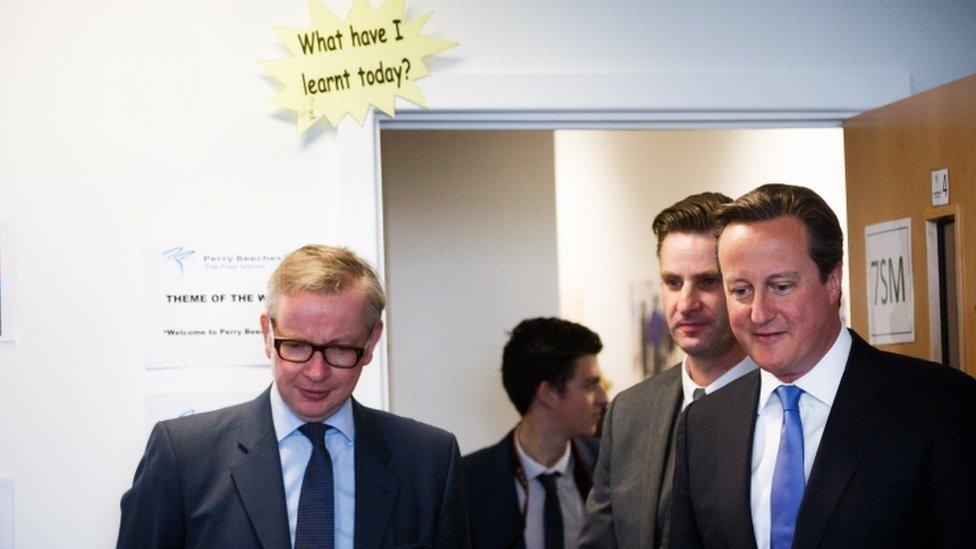Tory contender: Michael Gove
- Published

Date of Birth: August 26, 1967
Job: Lord Chancellor and Secretary of State for Justice
Education: State school and then independent Robert Gordon's College on a scholarship, Oxford University
Family: Married with two children
On his party's future: "I wanted to help build a team behind Boris Johnson so that a politician who argued for leaving the European Union could lead us to a better future. But I have come, reluctantly, to the conclusion that Boris cannot provide the leadership or build the team for the task ahead. I have, therefore, decided to put my name forward for the leadership."
Pitching himself as the "change candidate," he said Britain needed "not just a cool head, but a heart burning with the desire for change - not business as usual but a bold vision".
Where he stands on Brexit: "The British people voted for change last Thursday. They sent us a clear instruction that they want Britain to leave the European Union and end the supremacy of EU law. They told us to restore democratic control of immigration policy and to spend their money on national priorities such as health, education and science instead of giving it to Brussels. They rejected politics as usual and government as usual. They want and need a new approach to running this country.
He ruled out a snap general election if he becomes PM - and he said he would abandon Chancellor George Osborne's target of eliminating Britain's budget deficit by 2020. Mr Osborne himself has since abandoned the target.
When he would trigger Article 50: Would wait until at least until 2017 to kick off the two-year process of negotiating the UK's withdrawal from the EU. "I will only trigger it after extensive preliminary talks ... so I have no expectation that Article 50 would be triggered in this calendar year," he said.
Free movement policy: Has pledged to end free movement into the UK from the EU and "introduce an Australian points style immigration and bring numbers down".
What the press says: "Michael Gove is the politest man in politics and one of the most abrasive, a charmer who cultivates enemies. He is pious, loyal and incurably irreverent. He is a gifted communicator who is widely misunderstood, an accomplished operator who repeatedly makes basic errors, and a right-wing ideologue with a fierce aversion to unearned privilege." Ian Leslie in The New Statesman, external.
Political profile
A former journalist, who worked at the BBC before going on to become a star columnist on the Times newspaper, Michael Gove surprised few when he revealed himself to be a longstanding believer in Britain's exit from the European Union.
It was a bitter personal blow for David Cameron - the two had been close political allies and friends. Their families had even holidayed together.
But for Mr Gove, it was the logical next step in a career that had seen him challenge the established order at every turn.

Mr Gove presented the BBC's Week in Westminster
A radical, reforming education secretary, who seemed to delight in upsetting the educational establishment - whom he derided as Marxist Sixties throwbacks - his flagship policy was the launch of free schools, outside local authority control.
He also made sweeping changes to the exam system, working closely with special adviser Dominic Cummings, who would later run the campaign to leave the EU with him.
Mr Gove was eventually shunted out of the education job by Mr Cameron after one row too many.
He spent a brief time in a less high-profile role, as Conservative chief whip, before being promoted to justice secretary after the 2015 general election. He wasted no time in launching the kind of changes to the prison system that he had driven through at education, rediscovering his zest for radical reform.
Unlike Boris Johnson, he had never coveted the job of prime minister, in fact he had repeatedly insisted he had no interest in it, vowing in 2012 to "sign a piece of parchment in my own blood saying I don't want to be prime minister".
So it came as a surprise to many when he announced his candidacy. But his reason for standing could not have been spelled out more clearly - he did not think Mr Johnson, the man he fought alongside during the referendum campaign, was up to it. He faced accusations he had "knifed" his friend and colleague in the back, just as had done with David Cameron at the start of the campaign, but he insisted he had acted out of principle.

Mr Gove had been one of David Cameron's closest allies
Known for his cerebral approach to politics and courteous personal style - one MP described him recently as a "mixture of Jeeves and Che Guevara" - Mr Gove is proud of his modest background.
He was adopted when he was four months old by a family in Aberdeen.
His father was a fish merchant and his mother worked as a lab assistant at the University of Aberdeen and with deaf children for Aberdeen District Council.
Mr Gove was educated at both state and independent schools, in England and Scotland.
He studied English at Lady Margaret Hall, Oxford, in the 1980s and during his time there served as president of the Oxford Union.
He became MP for affluent Surrey Heath in 2005. He is married to Sarah Vine, a columnist for the Daily Mail, and has two children.